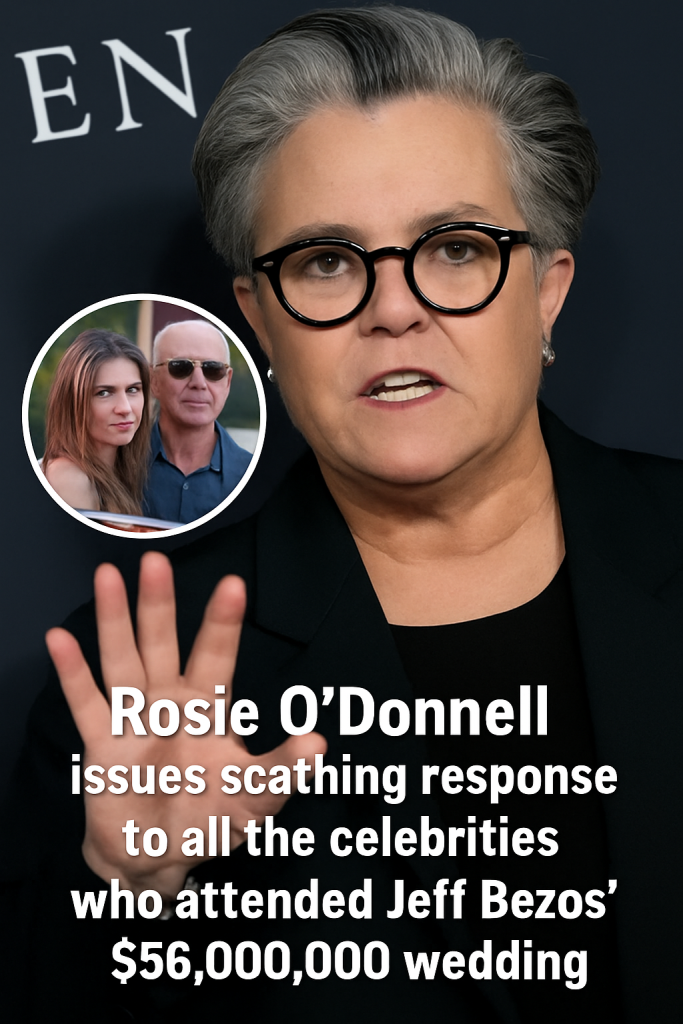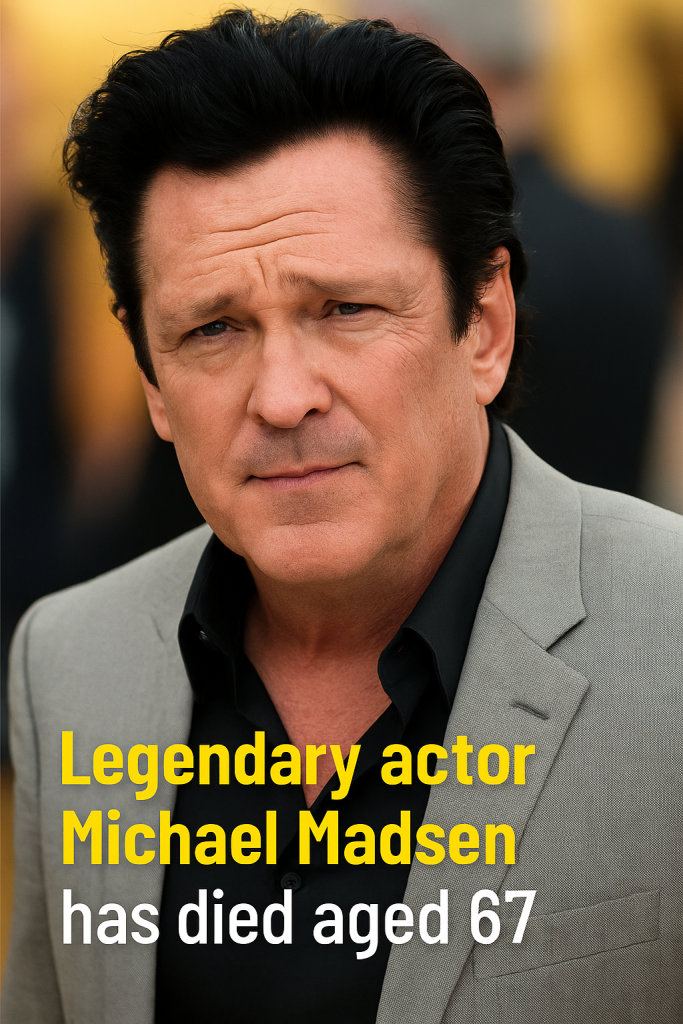In a fiery social media tirade that has since gone viral, comedian and former talk show host Rosie O’Donnell didn’t hold back in her criticism of the celebrity guests who attended Jeff Bezos’ extravagant $56 million wedding celebration. The high-profile event, marked by jaw-dropping extravagance and star-studded attendance, has sparked debate about wealth inequality and celebrity culture — and Rosie’s scathing response has fanned the flames of this ongoing conversation.
Jeff Bezos, the founder of Amazon and one of the world’s richest individuals, reportedly spent a staggering $56 million on his recent nuptials, held at an opulent venue and attended by a who’s-who of celebrities from various industries. The lavish affair included high-end entertainment, luxury accommodations, and gourmet dining, thrusting the event firmly into the spotlight as a symbol of extreme wealth.
However, it was Rosie O’Donnell’s reaction that captured widespread attention. Taking to social media shortly after details of the wedding were made public, O’Donnell blasted what she described as the “hypocrisy” of the celebrity attendees. Her pointed remarks questioned the motivations of those who chose to partake in such an ostentatious display of wealth while many in the wider world face economic hardships.
“If you’re gonna dress up and celebrate a billionaire’s $56 million wedding, maybe take a moment to think about who really benefits from endless wealth hoarding,” Rosie tweeted, sparking conversations about celebrity complicity and societal values. She suggested that the celebrities who flocked to the event were more interested in networking and financial gain than genuine celebration, flipping the narrative on who might be truly “cash-hungry.”
O’Donnell’s comments resonate in a broader context of increasing public scrutiny over extreme displays of wealth amid global economic uncertainty. Critics argue that the sheer scale of Bezos’ wedding expenditures underscores a stark disparity, and the attendance of high-profile figures only adds fuel to the debate about the ethics of wealth and celebrity culture.
In response to Rosie’s statements, some defended the celebrities, arguing that attending the wedding is simply a social obligation or an acknowledgment of personal relationships, not an endorsement of wealth excess. Others, however, echoed Rosie’s sentiments, emphasizing that such displays of opulence during widespread financial instability can feel tone-deaf and insensitive.
Notably, Bezos himself has not publicly addressed the backlash surrounding his wedding, maintaining a low profile following the event. Celebrities present have also mostly remained silent, though the event has certainly added a new layer to ongoing discussions about wealth, privilege, and responsibility in the public eye.
As the story continues to unfold, Rosie O’Donnell’s comments serve as a stark reminder that societal perceptions of wealth and celebrity are complex and often fraught. Whether viewed as justified critique or controversial call-out, her outspoken stance highlights an enduring tension in a world where the extremes of luxury coexist with pressing social and economic challenges.
Ultimately, the debate ignited by the $56 million wedding—and Rosie’s subsequent takedown—forces us to consider: in an era of conspicuous consumption, who is really cash-hungry?



